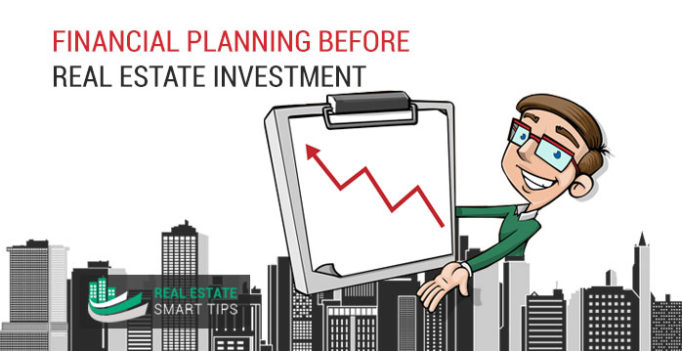Buying a house is an emotional decision. Most importantly, it is a decision backed by sound financial planning. At times you invest in a property considering your cash flow (income). Sometimes, you avail a hefty Home Loan from a Bank as you fail. At times, you fail to foresee things. Even if you have a stable job; you cannot assume that you can manage the finances well. A real estate purchase is a long-term commitment and anything may happen anytime. Therefore, proper financial planning is exceedingly essential.
Financial Planning: Before Real Estate Investment
Financial Planning is very critical. Furthermore, if you are buying a house on Loan it becomes more important. Hence, let’s list down points on why and how real estate investment should be backed by sound financial planning.
1.Monthly Household Expenses
Buying a house is a huge financial burden for any middle-class family in India. Even if they have a good job with a decent income; this is something what they realize after a short time. On other hand, with the increasing price of properties, it has become practically impossible for anyone to buy without a loan. Wondering how to plan? In the first place, you need to cut household expenses. This should be by minimum 25%-30% after buying a house with a Home Loan. You are used to a particular standard of living. Hence, it is not an easy task. But it is advisable to keep aside atleast 6 months household expenses. This can help you meet any future financial shortfall.
2. Loan Amount
As you approach a Bank for Home Loan generally the latter approves 80% of property value as loan. Hence, when you decide to go for a home loan you should be prepared to contribute 20% of property value as your own contribution/ down payment. Avoid raising this amount through loan or debt. In an ideal situation it is better to contribute minimum 40% as down payment from savings. This would help you reduce your loan weight. Most importantly, don’t overlook to consider other costs like Stamp Duty and Registration cost. These add up to 5%-10% of total cost.
3. Existing Loans/Debts
As you plan to avail a Housing loan it is better to clear all your existing loans or debts. To mention a few say, car loan, credit card loan, personal loans etc. This should be done before you approach for the Home Loan. To put in simple words, it at times becomes impossible to serve 2 loans concurrently considering the vast burden of Home Loan. Besides clearing these unsecured loans will perk up your CIBIL score.
4. Financial Planning for Home Furnishing
People generally have a tendency to overspend on House Furnishing and Interiors after they buy a property. Home décor is a major expense. It is important to set a budget for Interiors in advance. It is important that you firmly stick to the budget set to pass up any future financial blow.
5. Subsequent Six Months Liabilities
As you decide to go for a home loan, make a list of next 6 months liabilities. These include kids’ tuition fees, house rent (if you are staying in a rental house), Insurance Premiums (if any) and that. An amount should be reserved to meet these responsibilities on time.
6. Go For Affordable Housing
Look for something that is affordable. Things might not be same as you fancied, but compromising can be a financially sound move. Small sacrifices would pay off when you get the keys!
7. Reserve Three Months EMI
It would be a wise decision to keep 3 months EMI as reserve. In case of any unanticipated circumstantial crisis; you may pay the EMI on time with this. It is important to keep in mind that in case you fail to pay the EMI on time it can actually spoil your credit worthiness for future.
8. Regular Income Source
It is important that you consider your regular source of income carefully at the very initial stage. In the absence of a habitual income, your entire financial planning can go for a toss. For instance, if you are working in a sector which comes under the possibility of getting affected by recession then it is a sensible decision to defer the house purchase idea till you have an assurance of job stability.
9. Keep Emergency Fund as Financial Planning
Most importantly, life is uncertain. In addition, we can never foresee unexpected expenditures like health expenses, job loss, family function and the like. You need to have enough easily liquidated like Bank FD’s, Mutual Funds etc to meet an unexpected crisis.
To Sum up
Hope the points mentioned help in better financial planning. Most importantly, these can shield you from uncertainties of life.
This blog aims to make you realise that buying a dream home should be a pleasant experience and not something dreadful.
Please Like & Share to enlighten others.
Looking for more information on real estate? Keep exploring.


Be the first to comment